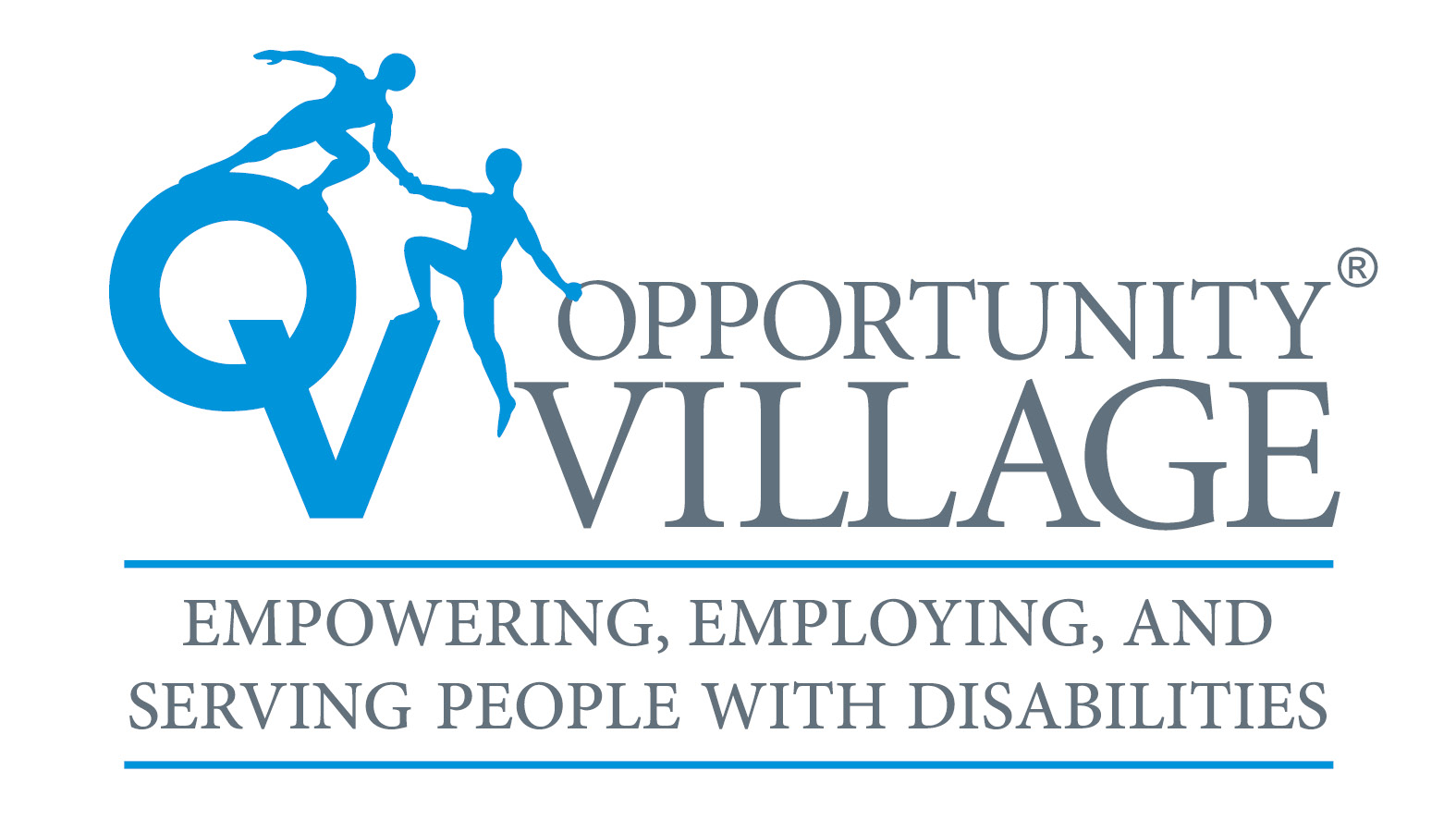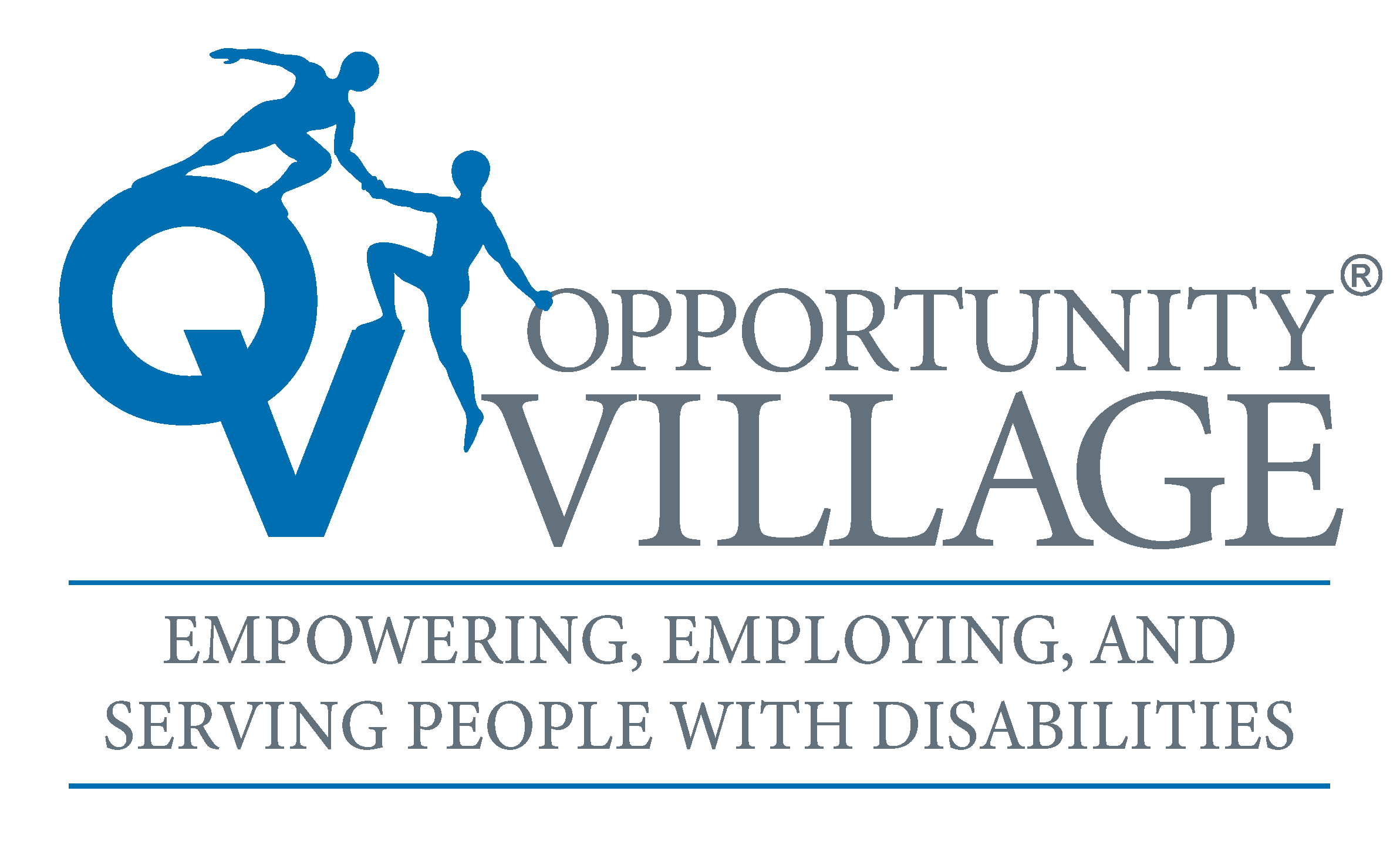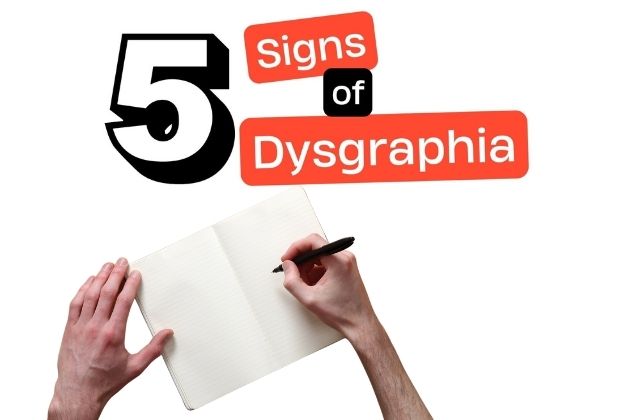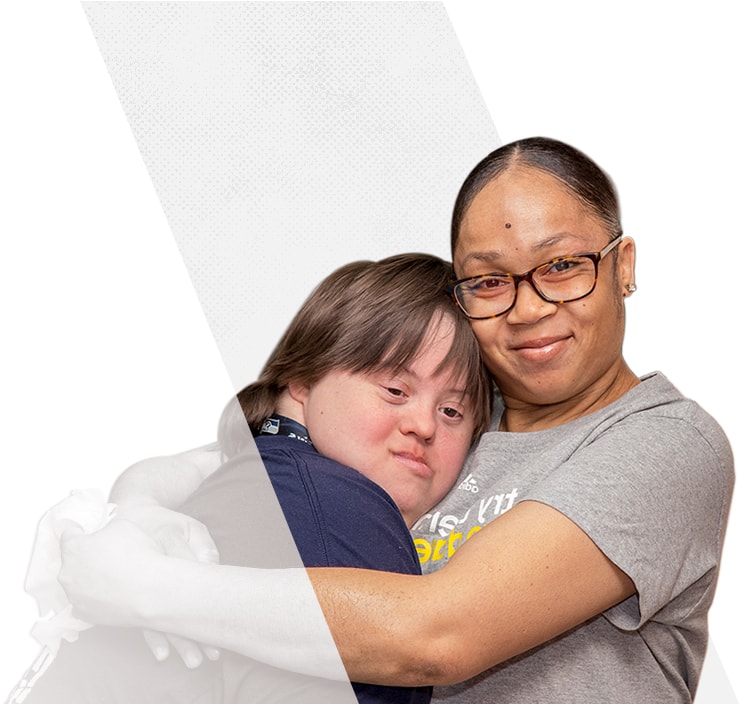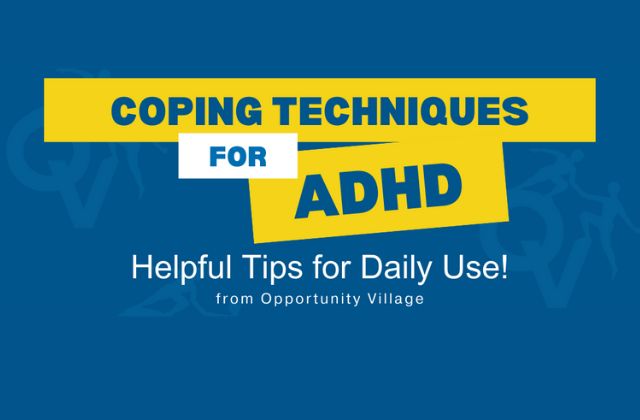
According to Dr. Russell Ramsay in Psychology Today, adult ADHD is an experience of being near-constantly misunderstood.
It makes small tasks feel insurmountable, it comes with feelings of guilt, and it can even take the joy out of the things you love. These ADHD coping strategies for adults can help adults better navigate their daily lives with greater success.
What Is ADHD And How Does It Affect Everyday Life?
ADHD mainly affects the brain’s ability to take control of attention and impulses. People with ADHD might find they often make impulsive decisions, have a feeling of hyperactivity, and trouble staying on task or keeping focus. For many, diagnosis happens in childhood, as ADHD will interfere with school performance, but some aren’t diagnosed until well into adulthood. While ADHD is considered to be a neurodevelopment disorder, it may be caused by a combination of both genetic and environmental factors.
For adults with ADHD, the effects may impact many different facets of everyday life. You might be more susceptible to impulsive behaviors like impulse eating, gambling, or substance abuse. The condition often causes lower levels of dopamine in the brain, and these impulsive “feel good quick” actions can work to provide just that hit of pleasure the brain seeks.
One of the biggest areas of life where the effects of ADHD can be felt by adults is at work. Employers expect employees to be attentive, organized, on time, and focused on the task at hand – all of which are made harder by ADHD. Employees with ADHD will often be more sensitive to distraction, they could be forgetful, they may struggle to keep their attention span during meetings, and executive functions may not come as naturally as they do for other people.
ADHD and anxiety or stress-related conditions often go hand-in-hand. With its effects on work and everyday life, it’s easy to understand how one’s self-esteem may be diminished.
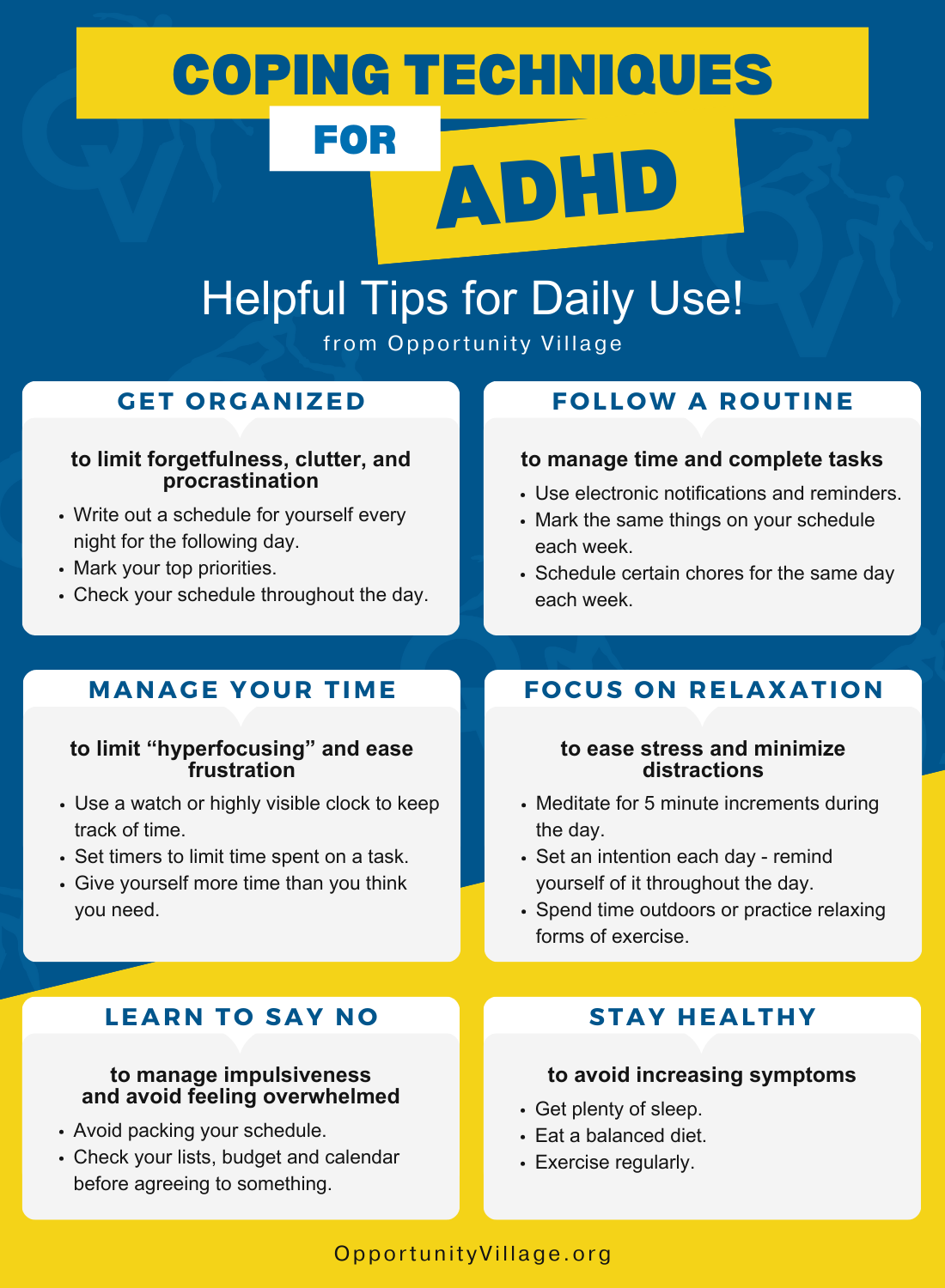
How Common Is ADHD In Adults?
ADHD is typically diagnosed in childhood, but the condition follows into adulthood. It’s a common misconception that adults “grow out” of ADHD; but rather they learn how to manage the symptoms better with occupational therapy and other ADHD coping strategies.
ADHD affects more than 366 million adults worldwide as of 2020. In the U.S. alone, ADHD affects more than 8.7 million adults.
6 Everyday Tips For Adults With ADHD
These ADHD coping strategies for adults can help control some fidget behaviors, improve the difficulty sleeping, the “buzz” of an overstressed body, and the overall discomfort the condition can cause.
1. Prioritize Organization
Intentional organization time can be a game changer for adults with ADHD. It helps to limit forgetfulness, it declutters your day and keeps you accountable for procrastination.
Each night, take time to write out the next day’s schedule, marking your top priorities like meetings, tasks, and appointments. Turn the daily agenda into a checklist you can check in with throughout the day.
2. Create A Routine
A routine is like a checklist you train yourself to naturally follow day after day. To manage your time and complete your regular tasks, put them into your routine.
Using the benefit of technology, set electronic reminders to keep you on your routine weekly schedule, like setting certain chores for certain days.
3. Time Management Is Key
In terms of ADHD coping strategies for adults, time management is a big one. Hyper-focusing is common for many with ADHD and finding yourself simply “losing” time while zeroing in on one task for too long.
We recommend giving yourself more time than you think you’ll need to complete tasks. It may help you to wear a watch and use electronics to set time limits on certain tasks to avoid losing track.
4. Get Comfortable With Saying ‘No’
An inability to say “no” can leave adults with ADHD feeling overwhelmed and struggling with their natural impulsiveness.
Always check your lists, routines, and schedules before agreeing to a new task, and if you find that your schedule is too full for comfort, get comfortable with being able to say “no”.

5. Relax
Self-care is crucial for adults with ADHD. Stress can exacerbate ADHD symptoms, and ADHD symptoms can exacerbate stress – thus creating an ongoing cycle.
Each day, set aside five minutes for meditation and approach your meditation session with a specific intention. Remind yourself of your intention throughout the day. Along with meditation, setting aside some time to spend outdoors can help ease stress in the body and mind.
These ADHD coping strategies for adults can help control some fidget behaviors, improve the difficulty sleeping, the “buzz” of an overstressed body, and the overall discomfort the condition can cause.
6. Keep On Top Of Health
Like stress, poor lifestyle choices can make symptoms worse, and ADHD symptoms can make it difficult to make positive lifestyle choices. Each day, make sure to get a full night’s rest, prioritize nutrition, and make room in your schedule for regular exercise.
At Opportunity Village we set out to provide help and support for adults with ADHD and other neurological developmental conditions. You can find additional resources on our website and connect with us on social media.
